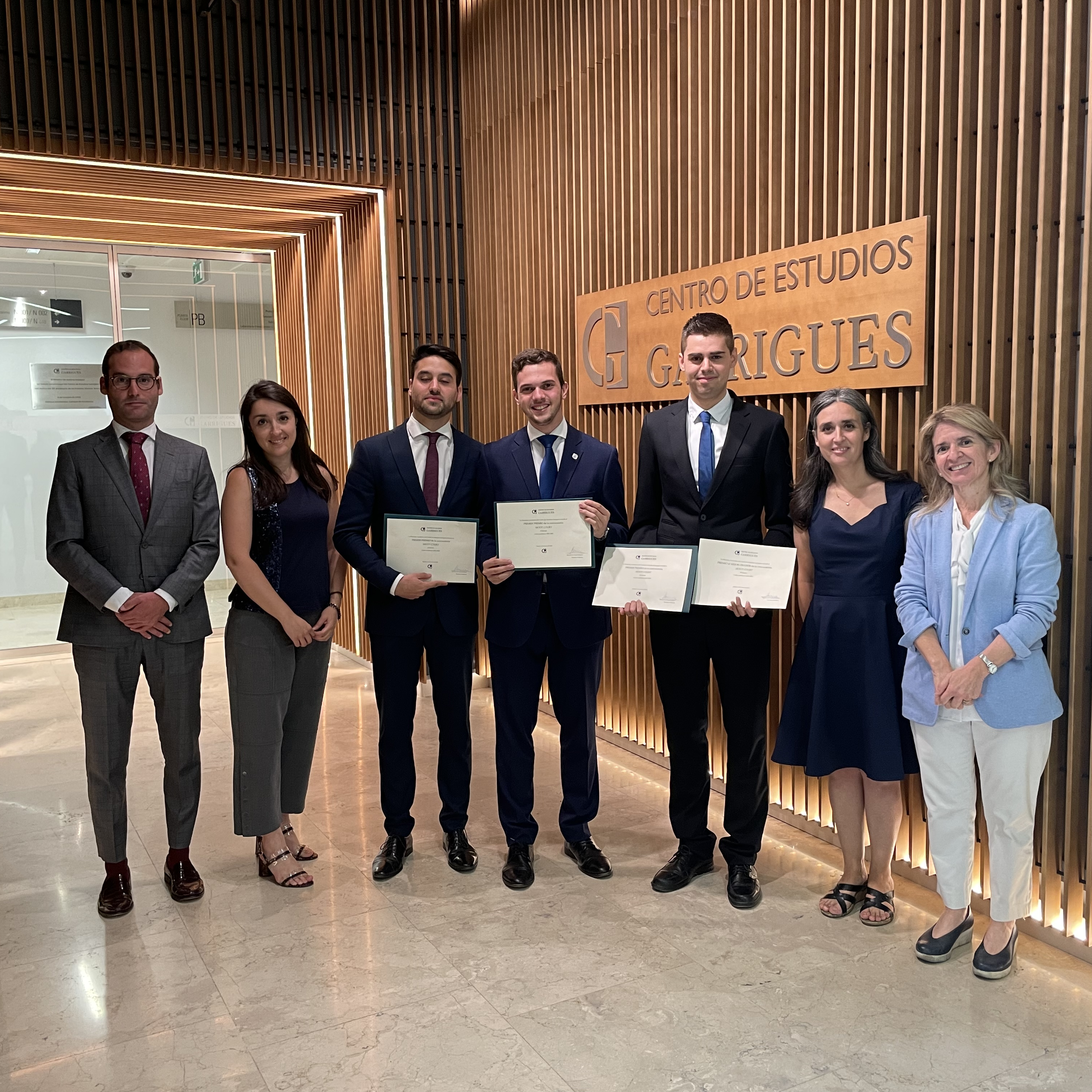The competition will be split into two different elimination phases, similar to the structure of real litigation: first, a written phase; then, an oral phase.
WRITTEN PHASE
This is an elimination phase during which the teams must prepare their written prosecution and defence briefs (with a maximum length of five pages, according to the style guidelines). A template will be provided, along with the evaluation criteria. The documents must be submitted by the teams in Microsoft Word (with the name and surname of every team member) and PDF format (anonymous, with the code provided by the organisers of the competition). The latter is the version that will be filed with the moot court.
Each team will receive a score of 0 to 5 points in the written phase:
4 points for legal content and sound argumentation of the case in both written submissions (2 points for the prosecution brief, 2 points for the defence brief);
1 point for structure and form, legal writing and language, proper spelling, organisation, and clarity of the presentation.
Teams with a score of 3 or more in the written phase will advance to the oral phase.
ORAL PHASE
Three days before the start of the oral phase, each team will be provided with their respective opposing prosecution or defence briefs, so as to better prepare their case and arguments in the oral phase although the main arguments presented in the written phase will also be taken into account.
This oral phase consists of two stages:
- The first group stage consists of four rounds, with all qualifying teams participating in all four rounds. If the number of qualifying teams does not permit this, the goal is for each team to compete at least three times. This first stage’s full schedule of match-ups will be randomly determined before the start of the first round. The teams with the strongest performance on each side will advance to the second stage.
- The second stage will consist of a varying number of rounds, depending on the number of teams that make it past the first stage. This is an elimination stage, with the losing team in each round being eliminated, while the winning team moves on to the next round. In this second stage, the match-up structure will pit the best teams from the previous stage against the worst, with mid-table teams facing each other: team 1 vs team 8, team 2 vs team 7, and so on. The match-ups will play out as outlined above, with teams 1, 2, 3, and 4 representing the prosecution and teams 5, 6, 7, and 8 representing the defence.
Different rounds of intervention will be carried out in each round to establish controversial facts, allegations and conclusions.
In the oral phase, the arguments and facts will be presented by each team to the court over a ten-minute period. Only one participant from each team will be allowed to speak. The team captain will verbally inform the court (no later than fifteen minutes prior to the start of the oral phase) as to which team member will be the speaker. Failure to submit a speaker to the court will be considered a forfeit.
Each round will have a five-minute period for rebuttals, during which each team may reasonably respond to their opponents’ arguments.
Following each team’s presentation and their opponent’s rebuttal, the court will have five minutes to question each team. At the end of the questioning period, the court will indicate the strengths and weaknesses of each teams’ arguments. At the end of the round, after a maximum of thirty minutes for deliberation, the judges will announce the winners of the round, who will advance to the semi-finals.
The four best teams will face each other in the semi-finals, with the same match-up structure as in the previous stage the team with the highest score vs the one with the lowest: team 1 vs team 4, team 2 vs team 3. Teams 1 and 2 will take on the role of defence, while teams 3 and 4 will represent the prosecution. Both the teams and the court will have the same amount of time for presentation, rebuttal, and questioning as in the previous stage.
The top two teams will progress to the final. The role played by each team in the final prosecution or defence will be determined by random draw after the end of the semi-finals.
FINAL ORAL PHASE
The presentation and rebuttal periods will be identical to those in the previous phases.
After hearing the arguments, rebuttals, and answers to their questions, and outlining the strengths and weaknesses of the arguments, the court will have a maximum of fifteen minutes to deliberate on which team had the best performance in the final.
Centro de Estudios Garrigues will provide participants with the case, templates and rules (style guidelines). The court will have full discretion to organise the proceedings and decide on any matters that arise during the competition.
Each team will receive a score of 0 to 5 points in the oral phase:
3 points for content and legal basis of the argument;
2 points for presentation skills, including oratory, intonation, and ability to effectively communicate the team’s arguments to the court.
Any disrespectful behaviour, speaking out of turn, or time-wasting will result in a 1-point deduction. Any team that receives three penalties in a single round will be expelled from the competition.
The points obtained in each phase of the competition will be added up for each participating team. The winner of the Centro de Estudios Garrigues Moot Court Award 2023/24 will be the team with the highest point total.



